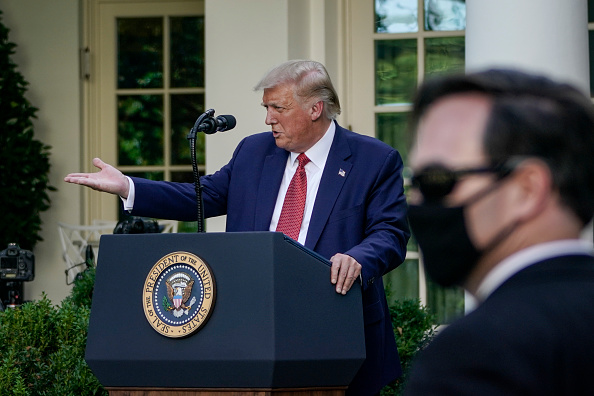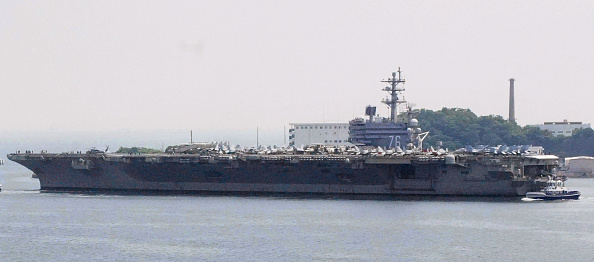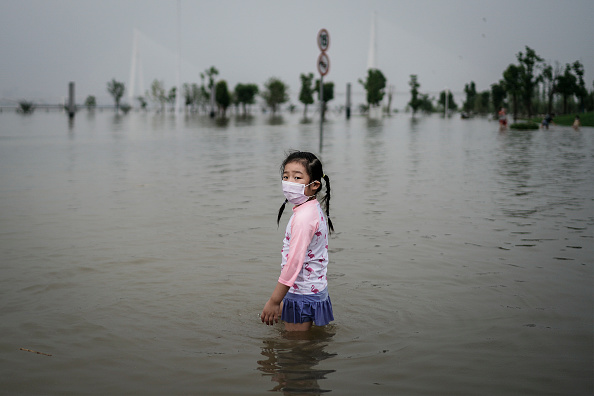
 Status Stripped
Status StrippedIn the wake of Beijing's imposition of a new national security law on Hong Kong, President Trump announced this week he is stripping Hong Kong of its special trading status. His executive order said that he determined Hong Kong was "no longer sufficiently autonomous to justify differential treatment" from the Chinese mainland. The White House decision will affect Hong Kong passport holders who visit the U.S. visa-free, and sanctions will also be imposed on individuals and banks accused of undermining Hong Kong's autonomy. The U.S. will apply the same punitive tariffs on Hong Kong exports as it imposes on mainland China, but is unclear to what extent the trade relationship will suffer. The Chinese Ministry of Foreign Affairs said the decision "maliciously denigrates Hong Kong's national security legislation," while the city's government termed the new restrictions "hypocritical."
The U.S. government is also reportedly mulling over a ban on members of the Chinese Communist Party and their families from entering the United States – a move that could affect as many as 270 million Chinese citizens. One academic suggested the plan would "inflame public opinion in China, as this would target nearly 10 percent of the entire Chinese population and would do so based on blanket assertions of guilt." On the same day, U.S. Secretary of State Mike Pompeo said he would issue a travel ban on Huawei employees. He described the firm as an "arm of the CCP's surveillance state," continuing to tow the Trump Administration's recent line on Chinese technology such as WeChat and TikTok. Chinese officials have yet to respond to the potential plans. For more on the evolving nature of the U.S.-China relationship, read "Globalization and Managing a Cooperative Rivalry" from Joseph Nye, former Dean of Harvard's Kennedy School of Government.
 Stirring the Waters
Stirring the WatersU.S. Secretary of State Mike Pompeo rejected Chinese claims of sovereignty in the South China Sea this Monday, taking a stand on what the U.S. views as Beijing's increasingly assertive moves to gain control of most of the South China Sea. In his statement, Pompeo described China as "predatory," and said the move was intended to strengthen U.S. policy "in a vital, contentious" region. Pompeo's statements support a 2016 ruling of the UN Convention on the Law of the Sea, which ruled many of China's claims to be unlawful and which has been disputed by Beijing.
Chinese Ministry of Foreign Affairs spokesperson Zhao Lijian said that Pompeo is intentionally stirring "up controversy over maritime sovereignty claims," and condemned the remarks. In recent days, the U.S. has sent ships into the South China Sea, in what is being described as "a message" that the U.S. will stand firm with its Southeast Asian allies and will push back harder against China's behavior.
 Floods in the Yangtze
Floods in the YangtzeChina's Yangtze River Basin is facing some of its worst floods in decades, as heavy rainfall has impacted 38 million people in the last month alone. Chinese President Xi Jinping has called for "all-out" efforts to protect people's livelihoods and properties, calling on the People's Liberation Army to assist in the 27 provinces that have been affected by surging river levels. The National Development and Reform Commission has promised 309 million Yuan (US$44 million) in aid.
Officials estimate the direct economic costs of the floods at more than 60 billion Yuan (US$8.6 billion). Criticism has also been leveled against the controversial Three Gorges Dam project on the Yangtze River, which was opened in 2003 to stop flooding the river delta. Officials in Beijing have maintained that the dam is functioning properly and doing an effective job at discharging excess water safely.
Prepared by China-US Focus editorial teams in Hong Kong and New York, this weekly newsletter offers you snap shots of latest trends and developments emerging from China every week, while adding a dose of historical perspective.
- 2020-07-10 A Historic Moment
- 2020-07-03 Handover Tested
- 2020-06-27 Relationship Spiral
- 2020-06-20 Bolton Bombshell
- 2020-06-13 Fits and Starts
- 2020-06-06 Confluence of Crises
- 2020-05-29 Questions of Autonomy
- 2020-05-22 Pandemic Decisions
- 2020-05-16 Fractures and Fault Lines
- 2020-05-09 Attacks and Counterattacks
- 2020-05-02 Retaliatory Actions
- 2020-04-24 Sinking Perceptions
- 2020-04-18 Pandemic World
- 2020-04-11 The Long Road Back to Normalcy
- 2020-04-03 Shifting Gears
- 2020-03-28 Cooperation or Confrontation
- 2020-03-20 World in Turmoil
- 2020-03-13 Global Emergency
- 2020-03-06 Global Strains
- 2020-02-28 Coronavirus Gone Global
